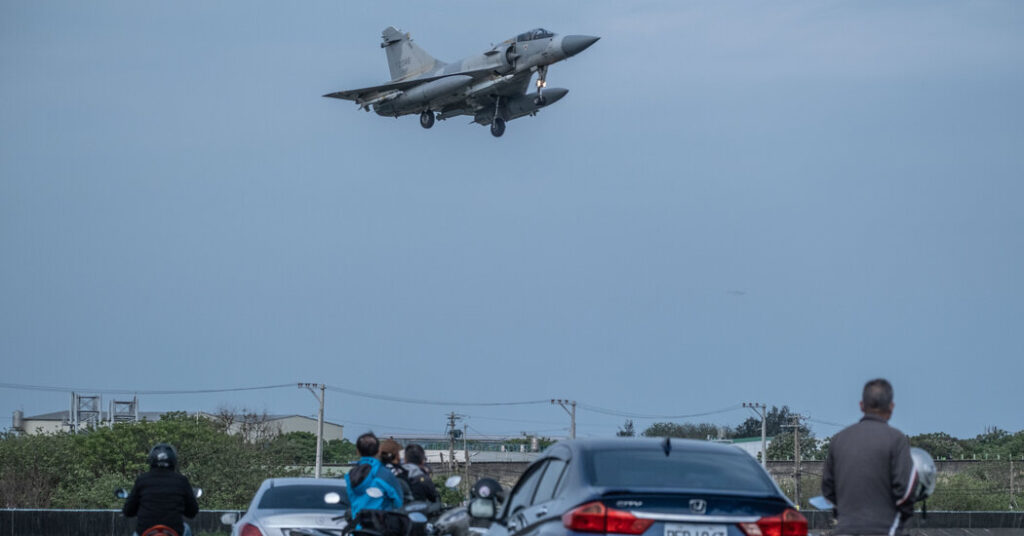China began two days of military drills around Taiwan starting on Thursday after Taiwan’s new president took office promising to defend its sovereignty, calling it “severe punishment” for its opponents on the self-ruled island.
The drills were China’s first substantive response to the swearing-in of President Lai Ching-te in Taipei on Monday, which Beijing dislikes. Lai’s party advocates Taiwan’s independent status from China and vowed in a high-profile inauguration speech on Monday to ensure Taiwan’s democracy is free from Chinese pressure.
China, which claims Taiwan as its territory, responded to Lai’s speech mainly with sharp criticism. But on Thursday, China escalated its response, announcing it was holding air and sea exercises around Taiwan and close to the Taiwanese islands of Kinmen, Matsu, Wuqiu and Dongyin in the Taiwan Strait.
China did not disclose how many aircraft and ships it deployed in the exercise, but the last major exercise it conducted in multiple locations around Taiwan was in April last year in response to former House Speaker Kevin’s visit to the island.
“Such exercises put pressure on Taiwan and its outlying islands, threaten regional stability and increase the risk of conflict,” said Ou Sifu, a researcher at Taiwan’s National Defense and Security Research Institute.
According to Chinese state media, Li Xi, spokesman for the Eastern Theater Command of the Chinese People’s Liberation Army, said the exercise was a “severe punishment” for “Taiwan independence forces” and a stern warning against interference and provocation by “Taiwan independence” forces. It’s America.
While Lai has pledged to protect Taiwan, he has sought to be conciliatory in other ways, signaling that he is still willing to hold talks with Beijing (which China froze in 2016) and restore cross-strait tourism. But China has bristled at Lai’s assertion that both sides are equal (he has said both sides are “not subordinate to each other”), as well as his emphasis on Taiwan’s democratic identity and warnings about threats from China.
After the speech, Beijing accused Lai of pushing for Taiwan’s formal independence and said the new president was more dangerous than his predecessor. “The ugly behavior of Lai Qingde and others in betraying the country and their ancestors is shameful,” Wang Yi, China’s top foreign policy official, said this week, according to China’s Foreign Ministry. “All Taiwan independence separatists will be nailed to the pillar of shame in history.”
Since Lai Chi took office, Taiwanese officials and military experts have been looking forward to a show of military power from China. Ma Zhenkun, a professor at Taiwan’s National Defense University, said pressure from the People’s Liberation Army is likely to continue, including around Kinmen and Matsu, islands controlled by Taiwan close to mainland China.
Chris Buckley Contributed reporting.

